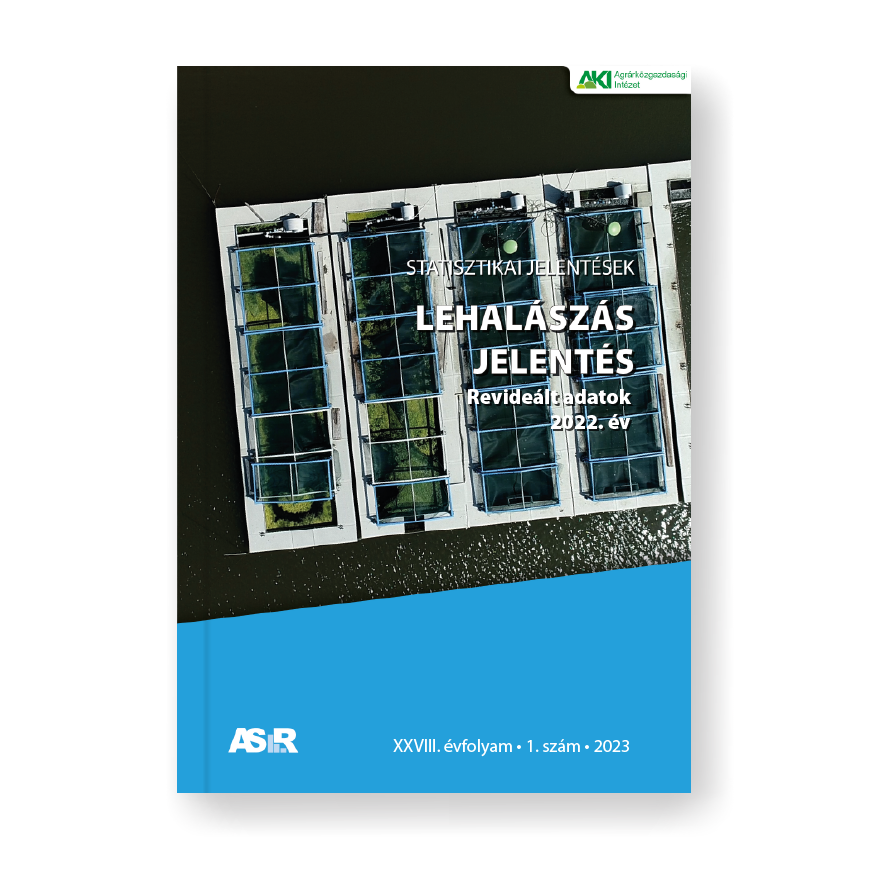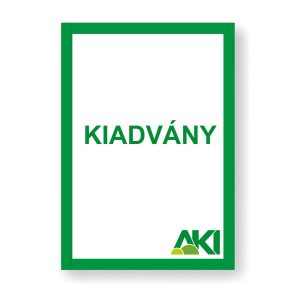Leírás
A magyarországi tógazdasági haltermelés volumene a revideált adatok alapján 2022-ben 21 215 tonna volt, ami 2,5 százalékkal alacsonyabb az előző évi (revideált) mennyiséghez képest. A korábbi évekhez hasonlóan 2022-ben is a haltermelés 83,0 százaléka három régióban (Észak-Alföld, Dél-Dunántúl és Dél-Alföld) koncentrálódott. Gazdaságilag legfontosabb halfajunk a ponty, amely a tógazdasági étkezési célú halhústermelésből 81,9 százalékkal részesedett 2022-ben. A hazai haltermelés meghatározó részét a tógazdaságok adják, amelyek üzemelt területe 26 682 hektár volt. Az intenzív rendszerekben előállított halmennyiség a megelőző évhez képest 9,9 százalékkal emelkedett, 6317 tonnára, amiből az étkezési célra termelt hal 4839 tonna volt. A halak és halászati termékek exportértéke 2022-ben 9,7 milliárd forintot, importértéke 54,7 milliárd
forintot ért el, a külkereskedelmi egyenleg 45,0 milliárd forintos passzívuma 9,6 milliárd forinttal meghaladta a 2021. évi deficitet.
In 2022, the volume of pond fish production was 21,215 tonnes in Hungary, 2.5 per cent lower than in the previous year. As in the preceding years, most of the fish, 83.0 per cent was produced in the same three regions, namely the Northern Great Plain, Southern Transdanubia and the Southern Great Plain. Economically, the most important fish species is still the common carp in Hungary, which accounted for 81.9 per cent of the fish produced for human consumption in 2022. Pond farms account for the majority of domestic fish production in Hungary and has been operating with an area of 26,682 hectares in 2022. The volume of fish production in intensive systems was 6,317 tonnes in 2022, which represented a 9,9 per cent increase compared to the previous year. The amount of fish produced for human consumption in intensive farms was 4,839 tonnes in the year under review. The export value of fish and fishery products reached HUF 9.7 billion in 2022, while the import value was HUF 54.7 billion. The HUF 45.0 billion foreign trade deficit was HUF 9.6 billion higher than in 2021.



 EN
EN

